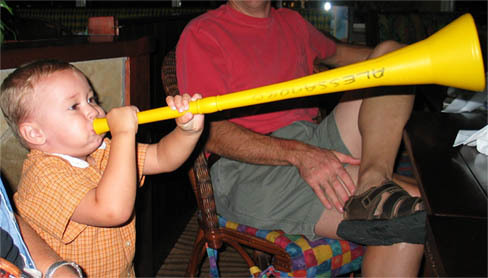This kind of information leads me ponder the following:
What exactly does the German-made duschdas showergel entitled "Dubai Dream" actually smell like? While my time abroad is somewhat of a distant memory, I recall it smelling of economic failure and parabens.
What does a troublesome economic condition mean for the market? For the individual? For collective society? Bailouts, foreclosures, and strikes, oh my! What ever is an individual to do in such an unrelenting miasma of fiscal negativity?
Enter Wisconsin and its state workers: pensions slashed and union powers diminished. Public school teachers and other state employees are now fervently taking to the cold, unforgiving streets and decrying the new budget plans, exercising one of the most fundamental of American rights: protest. While on one hand Governer Walker insists the budget cuts will lessen the burden on the debts facing future generations, teachers are reluctant to let go of the theoretical thousands of dollars implied by cut cuts.
Wisconsin Governor Scott Walker (R), and what appears to be the kin of Cousin It from the Addams Family
The most important part of Walker's new cuts involve taking away the bargaining power of unions and requiring employees to pay union fees and paying what he calls "a little bit more" for health insurance and pensions. At this point, one wonders just how the protesters will win this battle as funds from out of state flow into the Republican coffers of Wisconsin, ensuring that corporate interests are still up for consideration when privatization comes along.It is blatantly obvious that big businesses are going to love the opportunity to jump on any public projects and offices that become privatized. At this rate, law enforcement, healthcare, and basic education are going to slip into the hands of corporations. And if these ventures fail miserably due to dreadful mismanagement and exploitation of the vulnerable? Well we've learned that the government is pretty keen on bailouts to the order of trillions of dollars. TRILlions.
Outside of Wisconsin, countless other American cities are now protesting in solidarity, fearing that their state might be next in line for cuts as their local governments mull over Walker-esque policies. This becomes an interesting dialogue indeed, as Wisconsin rises to be a veritable center of political protest and unrest. Reuters reports that a Wisconsin man has ordered a rather large supply of vuvuzela horns, to be distributed to protesters when they arrive for their next fight at the capitol.
While saying the word vuvuzela itself renders such terrible auditory World Cup memories, to think the protesters are now arming themselves with such instruments...well they're definitely going to be heard one way or another. Horns aside, one can't help but stop and reflect on how these public workers are the lifeblood of a dying breed of truly "engaged" Americans. They know what they want and they aren't afraid to turn up the volume until they're satisfied.
I pass up the very opportunity to question my bank when I'm charged a three-dollar "transaction fee" or when Sprint tacks on an extra ten dollars a month for "premium data usage." It's a sense of complacency, knowing that going through the proxies to fight these charges feels like an epic struggle between man and corporate behemoth. I, myself, am "OK" with far too much to make a long story short.
But when these Wisconsonians and other state workers across the nation feel like they've just been given short shrift by government cuts, they kick the shit off their boots, grab their vuvuzeli, and rush the capitol. These are the truly engaged citizens, these are the citizens that can beat the state into submission. It would seem they fear nothing, except of course going home empty-handed.
One might simply say that capitalism is tearing America apart with the threat of privatization. I would however present the counterargument that capitalism, in its most simple, unadulterated form, would never have left America in its current state. (Even Marx has my back on this one, I assure you.) Theoretically, the state provides the infrastructure for society to function and the market operates within these confines. Perhaps we're in need of a redefinition of "infrastructure," to make sure that this "structure" is more conducive to social benefits and services that need to reside outside the market, independent of the market.
Let us, for a moment, interrogate is the idea of an economic "crisis." We hear left and right that consumer confidence is up, that economists speculate a resurgence to occur "soon." This interesting dialectic of economic crises and recoveries only grows curiouser and curiouser, to quote a rather infamous Alice. But when exactly will America crawl out of this rabbit hole? When will America allow its most spirited of citizens the benefits they so passionately cry out for?
I was told once by an English teacher that to end a paper with a question or questions was poor form. But in this time of such uncertainty, it would seem that we still await the end to this economic fairytale gone awry.
DC
I've made use of the following articles for facts and figures:
- In Wisconsin, a jarring new note in discordant debate
- Wisconsin Gov. says Democrats failed to do their job
- Prank call fallout stokes Wisconsin union fight
- Wisconsin governor gets ovation from business group
- Dubai 40% vacant


